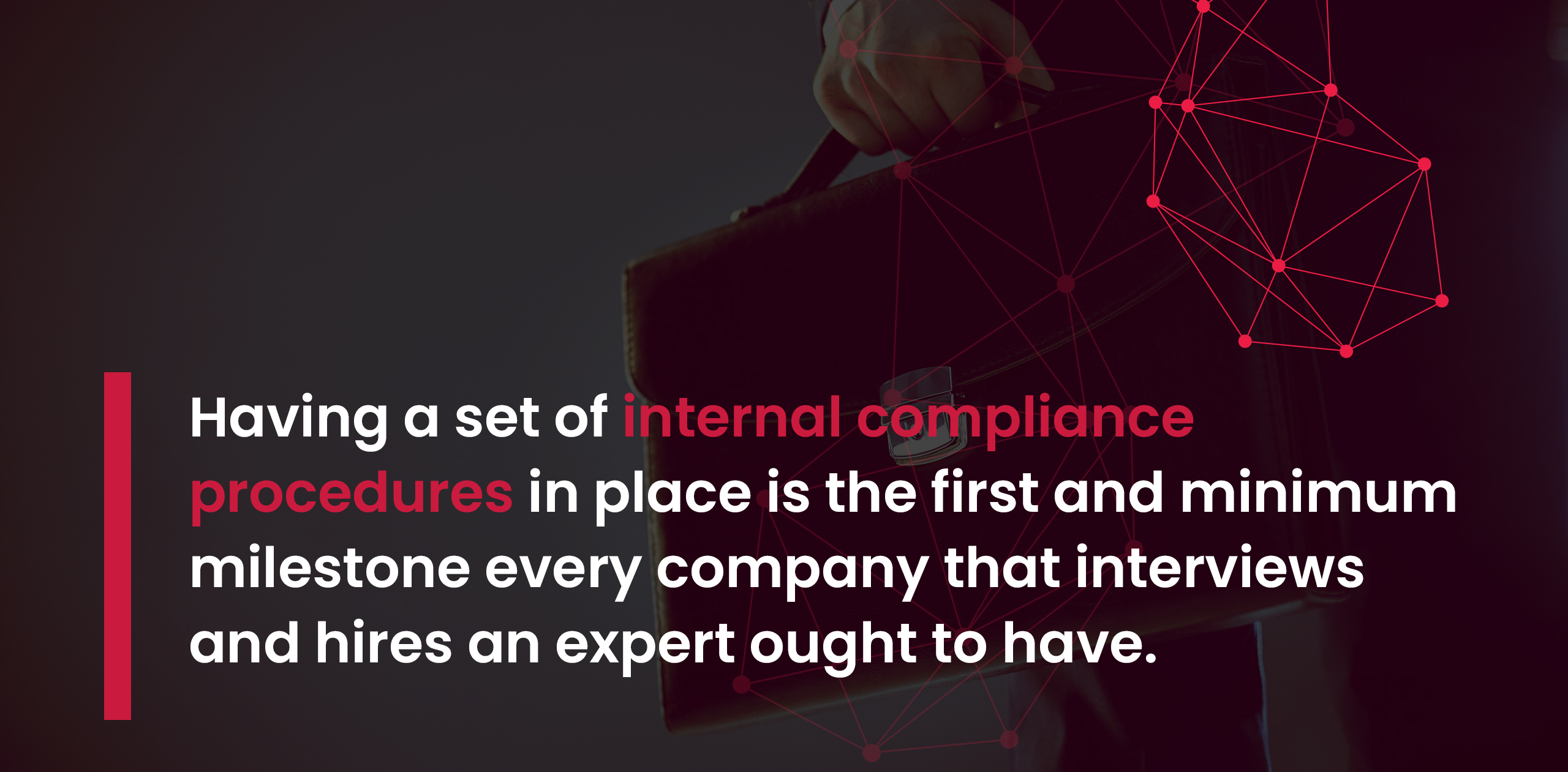Following compliance procedures when interviewing and hiring experts via expert network platforms has been a top priority for businesses for more than a decade.
As knowledge is a valuable yet intangible asset, it is crucial for a company to make sure it avoids any potential risks when looking for an appropriate expert or available information.
Before hiring an expert, a recruiter carries out an interview with the shortlisted specialist. This is the point at which compliance comes into play. It is important for an employee, namely the recruiter, to be compliant with the firm’s policy. This is especially crucial when the recruiter is interviewing an expert working for a public firm.

Who are the experts and what is an expert interview?
- An expert interview is a qualitative dialogue built on a specific topic that focuses on the expert’s knowledge which is widely defined as specific expertise in a certain field.
- Experts are people who are knowledgeable in a particular subject area and can be considered for their specific knowledge, their community role or status.
- Expert networks are specialized platforms that offer access to expert databases and various added-value services.
Since the late 2000s, expert networks started to enlarge their internal compliance teams to serve as an interface with customer compliance teams. Without an internal compliance team, an expert network would be unable to serve entire customer groups such as hedge funds and mutual funds.
Fully-fledged compliance programs have become standard for participation in
this arena since the demand for expert network services has substantially grown
What is Compliance?
Despite the lofty rhetoric, expert network compliance is fairly straightforward and should not be a mystery.
For almost every company, the following are the major compliance objectives:
- Avoid gaining access to material non-public information which could result in insider trading.
- Avoid speaking with individuals who have a conflict of interest as well as blacklisted firms/persons.
- Maintain a history of calls and the people engaged, the terms and conditions signed by the specialist and confirmation that they understand the criteria before the call takes place.
- Make sure that an expert is who they claim to be.
A consistent compliance program needs a regulated process that reduces
the possibility of human error.
How to Meet Compliance Requirements
The way companies protect themselves against risk of compliance violation is by requiring specific restrictions to be put in place during the expert recruiting process before an expert call takes place. The main compliance points to keep in mind are:
- Do not communicate with experts who currently hold a position at a public company or have held such a position within the last six months.
- Do not communicate with experts who are currently working for a governmental/regulatory agency.
- Do not communicate with experts who are currently involved in clinical trials or in trials for which the outcomes have not yet been published.
- Place restrictions on the number of calls with an individual specialist each year.
When these restrictions are taken into consideration, the risk of a damaging compliance breach is significantly lower.
Comprehensive compliance programs at expert networks have become the norm and the minimum prerequisite for participation in the field. The fundamental requirement for compliance is an error-proof procedure with a minimum manual review that may lead to errors.
Suggested reading:
What’s it like to be a Research Associate?
Why and how to become a member of an Expert Network – short guide
How to find expert network consultants and their rates?
Share to

